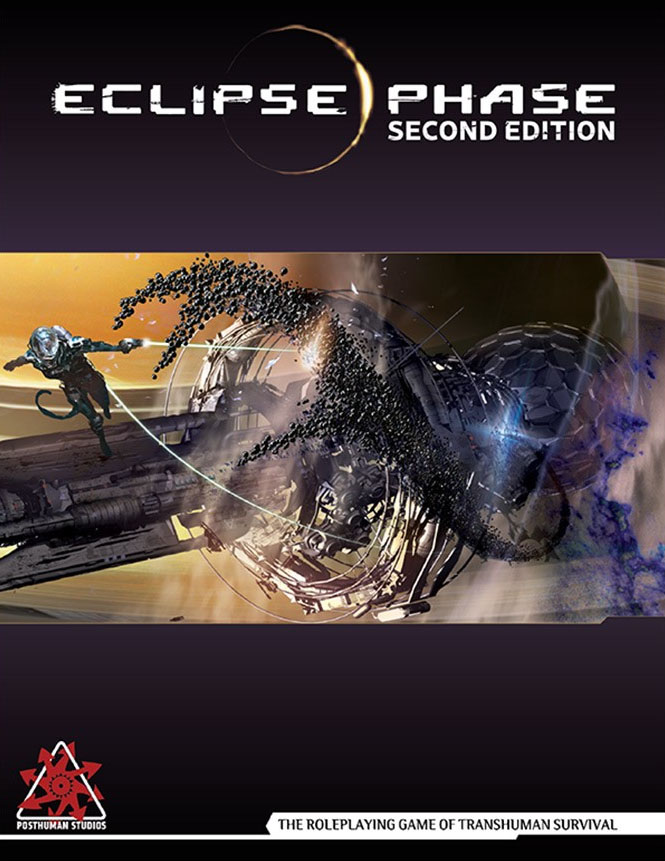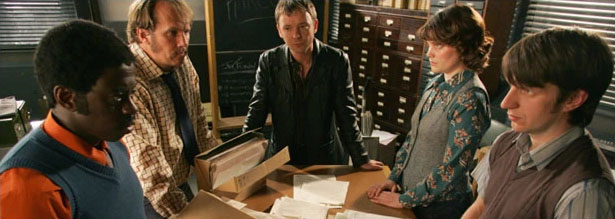In front of the windows, Rehobath sat behind an enormous desk of godwood – the pale, almost pearlescent wood glowing faintly with a white light in the presence of divine magic.
When describing a game world, I try to make a point of integrating the magical, supernatural, or otherworldly aspects of the setting – the stuff that makes the setting unique and different from the world as we know it – in to the setting as a whole: Magic in D&D, for example, shouldn’t only show up in the loot piles or as the central McGuffin of the current scenario.
This is how you make the fictional world come alive. You can see a great example of this in J.K. Rowling’s Harry Potter novels, in which the environments are filled to the brim with magical effects, even when that magic isn’t centrally relevant to character or plot. It’s why the Wizarding World is this vibrant, living place which fans find so inviting as a place to imagine living in despite the fact that none of that worldbuilding really “makes sense” if you think about it logically for any amount of time whatsoever.
This isn’t limited to fantasy, either. When I ran Eclipse Phase, for  example, I looked at the transhuman technology available and then very specifically think about how that technology would be realized in fashion. So when I’m describing characters they have prehensile hair, color-changing colors, nictating membranes on their eyes, holographic “make-up” projectors that turn their face into a living art project, and so forth. When it came time to write the Infinity core rulebook, I made sure we included a whole section on this type of stuff for the GM to riff around.
example, I looked at the transhuman technology available and then very specifically think about how that technology would be realized in fashion. So when I’m describing characters they have prehensile hair, color-changing colors, nictating membranes on their eyes, holographic “make-up” projectors that turn their face into a living art project, and so forth. When it came time to write the Infinity core rulebook, I made sure we included a whole section on this type of stuff for the GM to riff around.
A few partially overlapping categories to think about:
- Furniture
- Fashion
- Building materials
- Common conveniences or appliances
- Trinkets
Also think about garbage, trash, and detritus. When we think about the cool things that some speculative conceit would make possible, I think we often default to thinking of those things as being new or shiny. But the thing that will make the future feel fundamentally real to someone from 1895 is not the automobile: It’s the rusted Chevy on cinderblocks in the front yard. It’s the patch of leaked coolant slicking the parking lot asphalt. It’s the busted hubcap laying askew in the gutter.
Numenera is basically a whole game based around this conceit (with the titular numenera being mostly the broken or discarded technological remnants of past civilizations), and also takes it to the ultimate extreme by postulating that the very dirt of the Ninth World is, in fact, made up of particles of plastic and metal and biotechnical growths that have been eroded by incomprehensible aeons.
Similar principles can also apply even without speculative fiction, however: What makes a ‘70s police precinct different from the world that the players are familiar with? (Check out the original Life on Mars television series to see this particular example realized in detail.) Or just life as a police officer in general? Or the environment of a squad of soldiers in Afghanistan? Or just daily life in Paris?
(This assumes, of course, that the players are not currently on tour in Afghanistan or living in the 9th Arrondissement.)
The past is a foreign country. Foreign countries are also foreign countries.













A bit off topic, and my apologies if there is somewhere better to ask this, but are you planning to do a review of Pathfinder 2e?
Do enjoy the article, by the way.
Having just come back from a foreign country yesterday (the USA) to Australia, I can say it’s not the 98% of the culture that’s the same that makes it foreign, it’s the 2% of (largely) insignificant things that are different.
That glasses of beer are a different size, that no one swears on TV but you can buy vibrators from the hotel mini-bar, that the traffic light phasing is longer, that stop signs are round instead of octagonal, that the main meal is inexplicably the entree, that police cars are black and white instead of blue and whatever colour the dealership had a discount on that week (usually white), that some things are much cheaper and others are way more expensive, that most of the language is the same except some words have a different or no meaning and they render the entire sentence unintelligible, that the guy who serves your food is not the guy who takes away the plates, that the cereal in the supermarket has all the same manufacturers but almost none of the same brands, etc.
You don’t have to make big changes to make something that’s weird.
@Malkyn: Honestly, I think it’s unlikely. I’ve got an OD&D, two 3E, and one 5E campaign all running in tandem right now. I don’t have any personal motivation to pick up PF2, and if I did it would have to get in line behind a series of other campaigns I’d like to get off the ground (Invisible Sun, Ars Magica, Over the Edge, probably Feng Shui, and also Prince Valiant).
@Dale: Very true! I’m typing this comment while sitting in a bus station at Heathrow on my way to the Grand Tribunal, and while I felt fairly well oriented to the UK, the fact that Coke bottles are a different size is what actually hit me in the “foreign country” nerve.